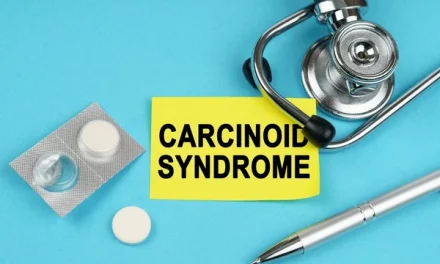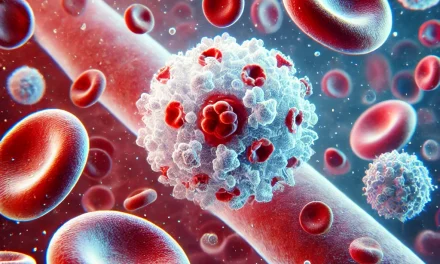The quest for longevity has been a defining aspect of human culture for centuries. Today, advances in biotechnology and peptide science are making it possible to not only imagine longer lifespans but to experience healthier, more youthful years along the way. Protein peptides, short chains of amino acids that act as signaling molecules in the body, are emerging as powerful tools in the fight against aging. From stimulating collagen production to enhancing mitochondrial efficiency, peptides are influencing nearly every aspect of cellular health. Their role in anti-aging therapy is becoming one of the most exciting developments in modern science.
Understanding Peptides in Aging
Peptides are essentially fragments of proteins, composed of two to fifty amino acids. Unlike large proteins, peptides are small enough to easily penetrate tissues and activate specific cellular pathways. Their role in anti-aging is tied to their ability to mimic or regulate natural biological processes. Some peptides are naturally occurring, such as collagen peptides released when the body breaks down collagen, while others are synthetically developed to target particular mechanisms of aging.
The aging process involves cellular senescence, DNA damage, mitochondrial decline, and reduced production of vital structural proteins such as collagen and elastin. Peptides interact with these processes directly. By binding to cell receptors, they can switch on signaling pathways that stimulate repair, regeneration, and rejuvenation. This makes them a unique intervention compared to traditional supplements, which often cannot target cellular pathways so precisely.
Collagen Stimulation and Skin Health
One of the most visible aspects of aging is skin deterioration—loss of elasticity, wrinkles, and sagging. Collagen peptides, derived from hydrolyzed collagen, play a vital role here. When ingested or applied topically, they act as messengers, signaling fibroblasts in the skin to increase collagen synthesis. Clinical research shows that collagen peptides significantly improve skin hydration and elasticity, leading to a reduction in wrinkle depth after consistent use .
Other bioactive peptides, such as palmitoyl pentapeptide-4 (also known as Matrixyl), directly target skin fibroblasts to promote the production of collagen and glycosaminoglycans. This mechanism restores dermal structure and smooths fine lines, making peptides a cornerstone of modern cosmeceuticals.
Mitochondrial Function and Cellular Energy
Aging is often described as a decline in energy metabolism. Mitochondria, the powerhouses of the cell, lose efficiency with age, leading to fatigue, slower repair mechanisms, and increased vulnerability to disease. Certain peptides, such as MOTS-c and humanin, interact with mitochondrial DNA to improve energy production and reduce oxidative stress .
By regulating pathways like AMPK (AMP-activated protein kinase), these peptides encourage the body to burn fat for fuel, enhance insulin sensitivity, and reduce the accumulation of damaging free radicals. This not only combats age-related metabolic disorders but also supports overall vitality and longevity.
Peptides and DNA Repair
DNA damage is a key driver of biological aging. Environmental stressors, toxins, and normal metabolic processes all contribute to DNA mutations over time. The body’s repair mechanisms slow with age, allowing errors to accumulate and increase the risk of age-related diseases such as cancer and neurodegeneration.
Some peptides have shown the ability to enhance DNA repair and protect against damage. For example, the peptide Epitalon has been studied for its role in increasing telomerase activity . Telomerase extends telomeres, the protective caps at the end of chromosomes that naturally shorten with age. By lengthening telomeres, Epitalon helps maintain chromosomal stability and extend the lifespan of cells.
Anti-Inflammatory and Antioxidant Effects
Chronic inflammation and oxidative stress are hallmarks of aging, often referred to as “inflammaging.” Peptides like glutathione peptides and thymosin beta-4 help regulate inflammatory responses and act as antioxidants to neutralize harmful free radicals . These peptides not only support immune function but also reduce tissue damage associated with aging.
Reducing inflammation has broad anti-aging benefits, as it helps protect cardiovascular health, preserves joint mobility, and reduces the risk of neurodegenerative conditions such as Alzheimer’s disease.
Beyond the Skin: Systemic Anti-Aging
While cosmetic benefits are often the most marketable aspect of peptides, their potential extends to whole-body anti-aging strategies. Peptides like BPC-157 support tissue repair and angiogenesis, making them useful for recovering from injuries and protecting against degenerative conditions . Others, such as FOXO4-DRI, target senescent cells, which are dysfunctional cells that accumulate with age and contribute to tissue decline. By selectively eliminating senescent cells, these peptides promote tissue regeneration and slow functional decline.
The Future of Peptide Therapy in Anti-Aging
As peptide research expands, we are moving closer to a future where aging itself is treated as a modifiable condition rather than an inevitability. Pharmaceutical-grade peptides are being tested in clinical trials, while nutraceutical and cosmetic industries are already offering peptide-based formulations to consumers.
The challenges ahead include ensuring peptide stability, improving delivery systems, and conducting long-term studies on safety and efficacy. However, the promise is undeniable: peptides are no longer fringe science but an integral part of the longevity revolution.
Practical Applications Today
For individuals interested in peptide therapy, options include oral collagen peptides, topical peptide creams, or prescription peptides like BPC-157 and Epitalon under medical supervision. While not all peptides are approved for human use in every country, growing consumer demand and clinical evidence are driving more regulatory pathways toward acceptance.
The best anti-aging strategies combine peptides with lifestyle practices such as proper nutrition, exercise, sleep, and stress management. Peptides should be seen as powerful allies within a broader holistic framework for healthspan extension.
Closing Thoughts
The science of peptides has transformed how we understand aging at the molecular level. From rejuvenating the skin to protecting DNA and energizing mitochondria, peptides offer targeted interventions that traditional supplements or treatments cannot match. As research progresses, they may become one of the most significant breakthroughs in extending not just lifespan but healthspan—allowing individuals to remain vibrant, resilient, and youthful far longer than ever imagined.
References
- Hexsel, D., Zague, V., Schunck, M., Siega, C., Camozzato, F., & Zechmeister, D. (2017). Oral supplementation with collagen peptides improves skin elasticity and reduces wrinkles. Journal of Cosmetic Dermatology. https://www.harvard.com
- Lee, C., Zeng, J., Drew, B. G., Sallam, T., Martin-Montalvo, A., Wan, J., … & Cohen, P. (2015). The mitochondrial-derived peptide MOTS-c promotes metabolic homeostasis. Cell Metabolism. https://www.harvard.com
- Anisimov, V. N., Khavinson, V. K., & Morozov, V. G. (2003). Twenty years of study on Epitalon. Biogerontology. https://www.harvard.com
- Li, M., & Slominski, A. T. (2020). Antioxidant peptides: Structure–activity relationship and applications in anti-aging. Nutrients. https://www.harvard.com
- Sikiric, P., Rucman, R., Turkovic, B., Sever, M., & Seiwerth, S. (2017). Stable gastric pentadecapeptide BPC 157 and its anti-aging potential. Current Pharmaceutical Design. https://www.harvard.com





